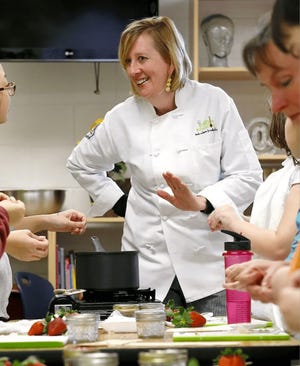
According to research, one in six American youth are obese. This epidemic has quickly taken hold of millions of young people today through various means. Although hereditary factors can lead to obesity, a poor diet, and a sedentary lifestyle are major determinants driving obesity.
Depending on their household behaviors, some children may be taught that consuming junk food isn’t that damaging for long-term health. Additionally, fast food is convenient for busy families that may not be able to cook healthy meals every day for their children.
Considering these factors, it’s apparent that all children in America should have some level of compulsory nutritional education. Many middle and high schools throughout the country already utilize similar programs. Students are required to attend a hybrid course that teaches them about nutrition and their growing bodies.
These classes are great ways to provide additional nutritional information for children, but they shouldn’t be used as a framework for creating healthy adults. Youth must be learning about nutrition earlier on, ideally during elementary school. It should be the role of school systems to teach young children life-long habits to maintain good health and make smart dietary choices. This is especially true as many children don’t have parents who are teaching them these things at home.
Culinary skills are another component that must be added to compulsory elementary nutrition education. Learning about the food pyramid and what a healthy plate looks like is useful, but culinary skills are equally fundamental for enabling children to eat healthily.
Home economic electives offered for middle and high schoolers teach these culinary skills. However, elementary children aren’t afforded the same opportunity to learn since their abilities may be less advanced. Despite this, mandatory nutrition education programs could teach elementary children the same skills as long as they utilize safe equipment. This has been done before in numerous elementary schools across the country with the help of Ann Butler, a culinary expert who teaches children.
Edible Education is a company that aims to provide children with hands-on lessons in healthy living. The company encourages children to become excited about real food via cooking classes, enrichment programs, camps, birthday parties, and other events. They’ve partnered with hundreds of schools and community centers and are working to collaborate with more. Teaching children that cooking and nutrition can be fun is important for them to improve the health of children worldwide.
Ann Butler, the Founder of Edible Education, created the company to ensure that young children are empowered to choose healthy foods and prepare delicious meals for themselves and others. As a culinary expert with several years of experience working in fine dining restaurants, Ann eventually decided to provide children with knowledge about cooking and nutrition. She taught preschoolers and middle and high schoolers until she realized that her dream couldn’t be achieved through her role as a public school teacher.
Since students past elementary school have already developed nutrition habits, it’s quite difficult to change them. With this in mind, Ann founded Edible Education, a company determined to teach young children culinary skills and nutrition principles earlier.
It took many years for Edible Education to become a well-known provider of kid-friendly recipes and cooking lessons, as well as their Kitchen a la Cart product. Ann has been grateful to partner with many schools and nonprofits since all of these successes translate to more children with strong culinary skills and an understanding of nutrition. For many years, Ann feels that children’s nutrition isn’t discussed enough. Teaching children culinary skills is just as overlooked as many people underestimate the capabilities a child has to understand complex concepts. From Ann’s experience, children are thrilled to learn and be asked for their opinion on how to make a dish tasty. She notes that children should be able to direct their learning process through hands-on experiences. This builds their confidence and allows them to become more creative with what they’ve learned. Ann’s techniques have encouraged multiple students to participate in youth culinary TV competitions and pursue a career as a chef.
Additionally, the CDC says American pupils have less than eight hours of nutrition education annually, substantially lower than the number of hours needed to create behavioral changes. Studies have shown that nutrition education can positively impact children’s food-related preferences and behaviors, highlighting the importance of creating more of these required programs.
“As a mother of three, I know that it can be difficult to put healthy, fresh food on the table every night,” says Butler. “However, I know that the long-term consequences of neglecting to enforce healthy eating habits in your children can lead to life-threatening health conditions. That’s why it’s so important for your children to learn how to cook and consume food that’s good for them before they need to do it independently. By teaching kids how to prepare food and the nutritional values behind them you are setting them up for an entire life of healthier living.’’
Media Contact
Name: Ann Butler
Email: [email protected]
